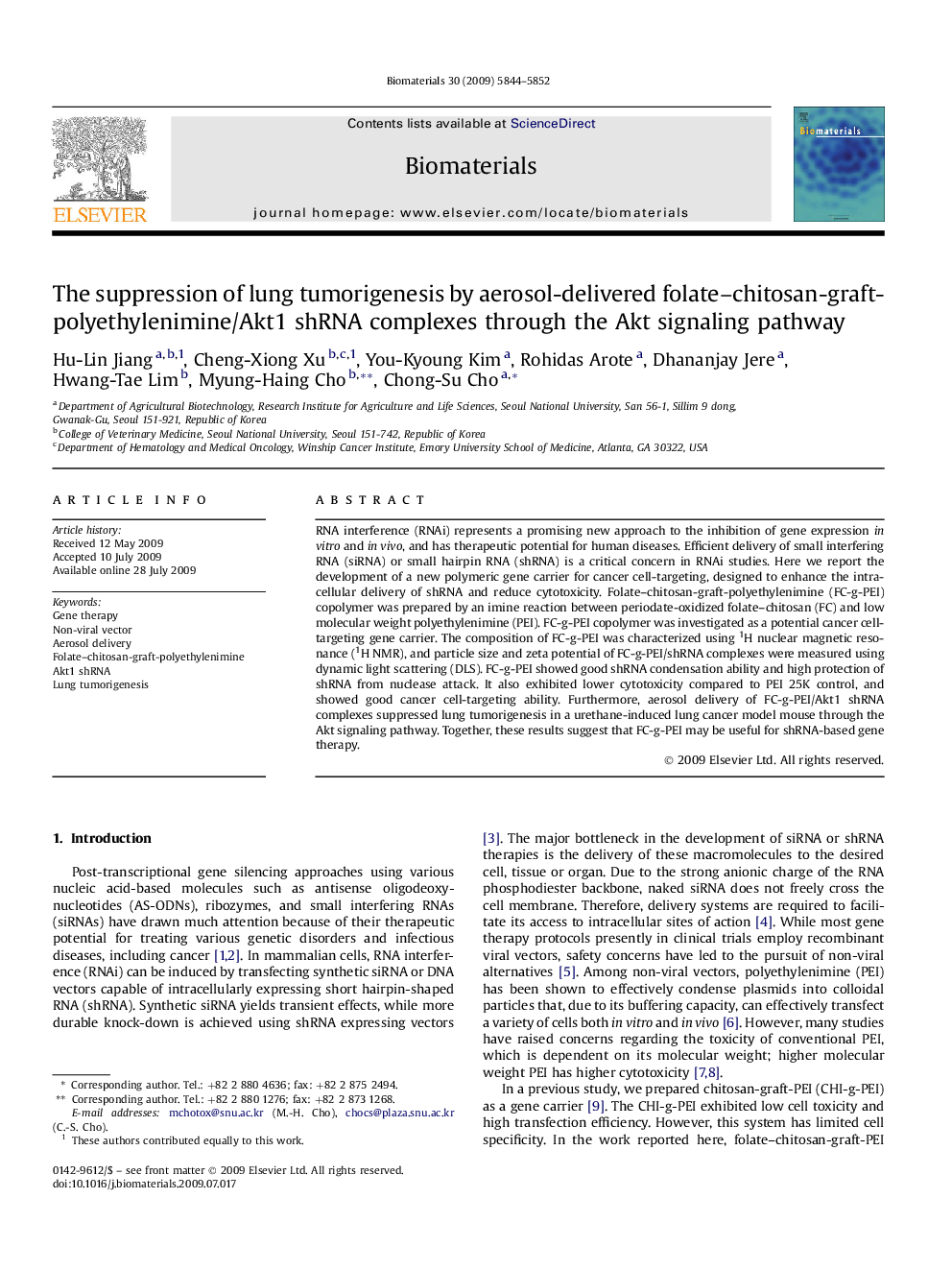| Article ID | Journal | Published Year | Pages | File Type |
|---|---|---|---|---|
| 8955 | Biomaterials | 2009 | 9 Pages |
RNA interference (RNAi) represents a promising new approach to the inhibition of gene expression in vitro and in vivo, and has therapeutic potential for human diseases. Efficient delivery of small interfering RNA (siRNA) or small hairpin RNA (shRNA) is a critical concern in RNAi studies. Here we report the development of a new polymeric gene carrier for cancer cell-targeting, designed to enhance the intracellular delivery of shRNA and reduce cytotoxicity. Folate–chitosan-graft-polyethylenimine (FC-g-PEI) copolymer was prepared by an imine reaction between periodate-oxidized folate–chitosan (FC) and low molecular weight polyethylenimine (PEI). FC-g-PEI copolymer was investigated as a potential cancer cell-targeting gene carrier. The composition of FC-g-PEI was characterized using 1H nuclear magnetic resonance (1H NMR), and particle size and zeta potential of FC-g-PEI/shRNA complexes were measured using dynamic light scattering (DLS). FC-g-PEI showed good shRNA condensation ability and high protection of shRNA from nuclease attack. It also exhibited lower cytotoxicity compared to PEI 25K control, and showed good cancer cell-targeting ability. Furthermore, aerosol delivery of FC-g-PEI/Akt1 shRNA complexes suppressed lung tumorigenesis in a urethane-induced lung cancer model mouse through the Akt signaling pathway. Together, these results suggest that FC-g-PEI may be useful for shRNA-based gene therapy.
